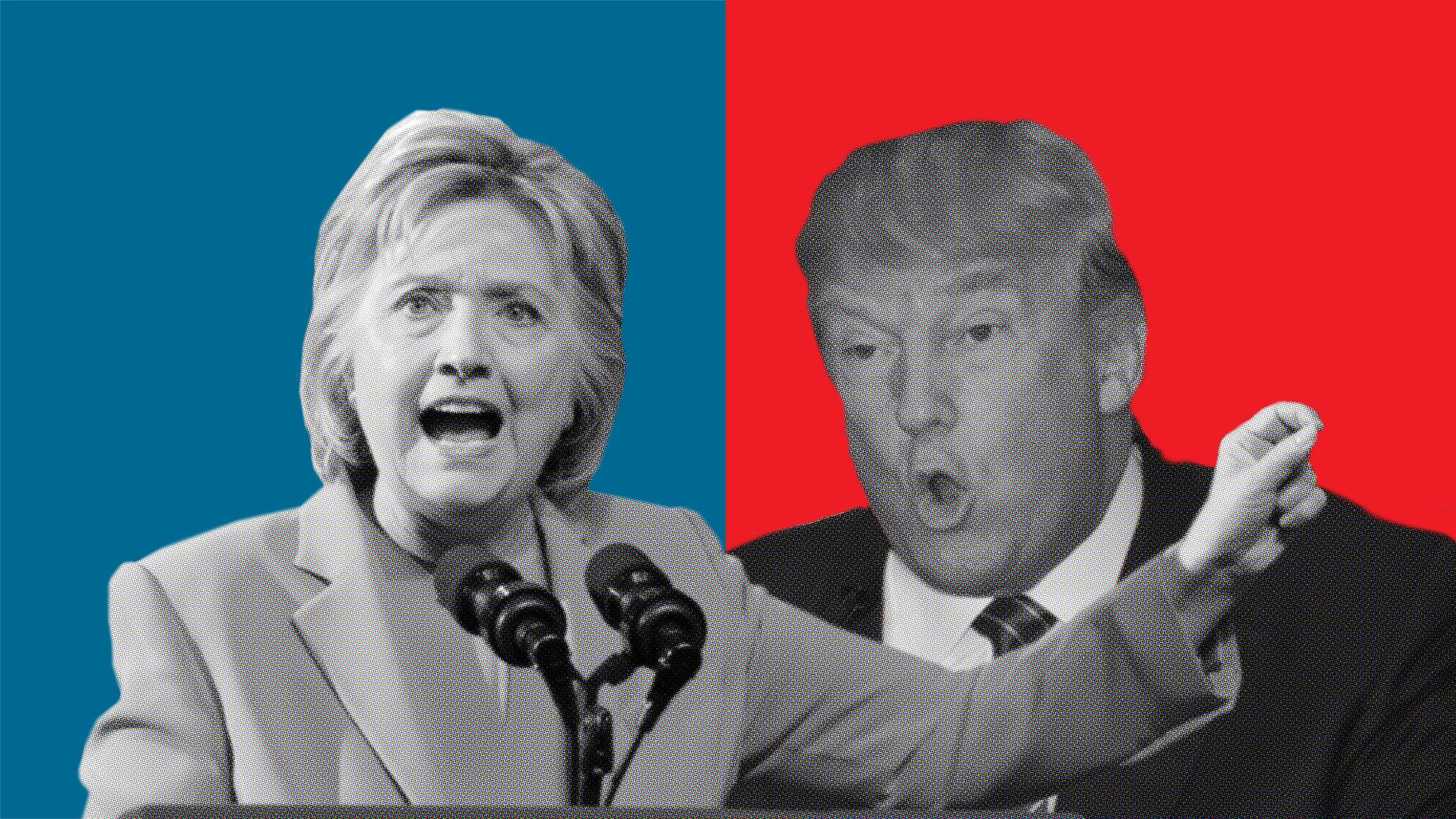There’s a lot to unpack after the first of three presidential debates aired on Monday night, drawing 81.4 million viewers as well as much commentary about Hillary Clinton’s and Donald Trump’s respective manner, policy proposals, and truthfulness in an election when many American voters are feeling hopeless. Here are some essays and reactions that we found enlightening:
“I felt like I was watching the political Titanic hit the iceberg, back up, and hit it again. Just for fun.” ~ David French, National Review
“America’s First Post-Christian Debate,” Yoni Appelbaum, The Atlantic
Nor, more significantly, did she invoke the language of civil religion. She did stress that “we have to bring communities together,” and refer to the “future we’ll build together,” but there was little emphasis on either America’s distinctive mission, or on the individual or collective responsibility to achieve it.
Trump, on the other hand, didn’t just abandon the rhetoric of American religion; he repudiated it. He spoke sometimes in the first person, sometimes in the majestic plural, but always to explain what he himself intended to do, and never to summon his fellow Americans to join him in the work. The solutions he offered all rested, to greater or lesser extents, on actions he would take as president.
Hillary Clinton, a devout Methodist, tends not to discuss her Christian faith before general audiences, or to infuse her rhetoric with the language of religion. . . . On Monday night, Clinton limited herself to passing references to the black church and faith communities as civic institutions.
We’ve long understood that our Founding Fathers weren’t Christians in the CT sense, but historians agree that a Judeo-Christian framework animated their aspirations. Monday night’s debate wasn’t bleak just because the candidates seemed to be talking past each other, but also because they seemed to forget how central religion is to their viewers (70 percent of Americans still identify as Christian) and this nation’s story.
“Trump Interrupted Clinton 51 Times at the Debate. She Interrupted Him Just 17 Times,” Emily Crockett and Sarah Frostenson, Vox
Decades of research show that women get interrupted more often by both men and women, and that women are often given less credit, or even penalized, for being outspoken. . . .
The scope of the disparity varies from study to study, but the general pattern remains the same: Men are more likely to interrupt other people in general, and they interrupt women more often than they interrupt other men. And women, when they make interruptions, are also much more likely to interrupt other women than they are to interrupt men.
This pattern harms women in many ways, particularly when it comes to career advancement. For most women in the workplace, the phenomenon is exhaustingly familiar: A woman offers an idea in a meeting, but nobody notices or acknowledges it until a man later says the same thing. When women are interrupted more often, they are heard less. And sometimes they are interrupted more often because they are already heard less.
Many watching the debate might have felt the familiar “man-terruption” creeping in. It’s what happened to Taylor Swift at the VMAs back in 2009, and what happens to many women every day at the workplace. I was surprised to learn from the Vox study, however, that women are more likely to interrupt other women than men, and that social status and cultural upbringing inform the rate of interruption.
“ ‘Braggadocious?’ In Trump and Clinton Debate, Words That Sent Viewers to the Dictionary,” Liam Stack, The New York Times
Most of the most-looked-up words of the evening include temperament, stamina, and the phrase “stop and frisk.” Our favorite? Bigly.









